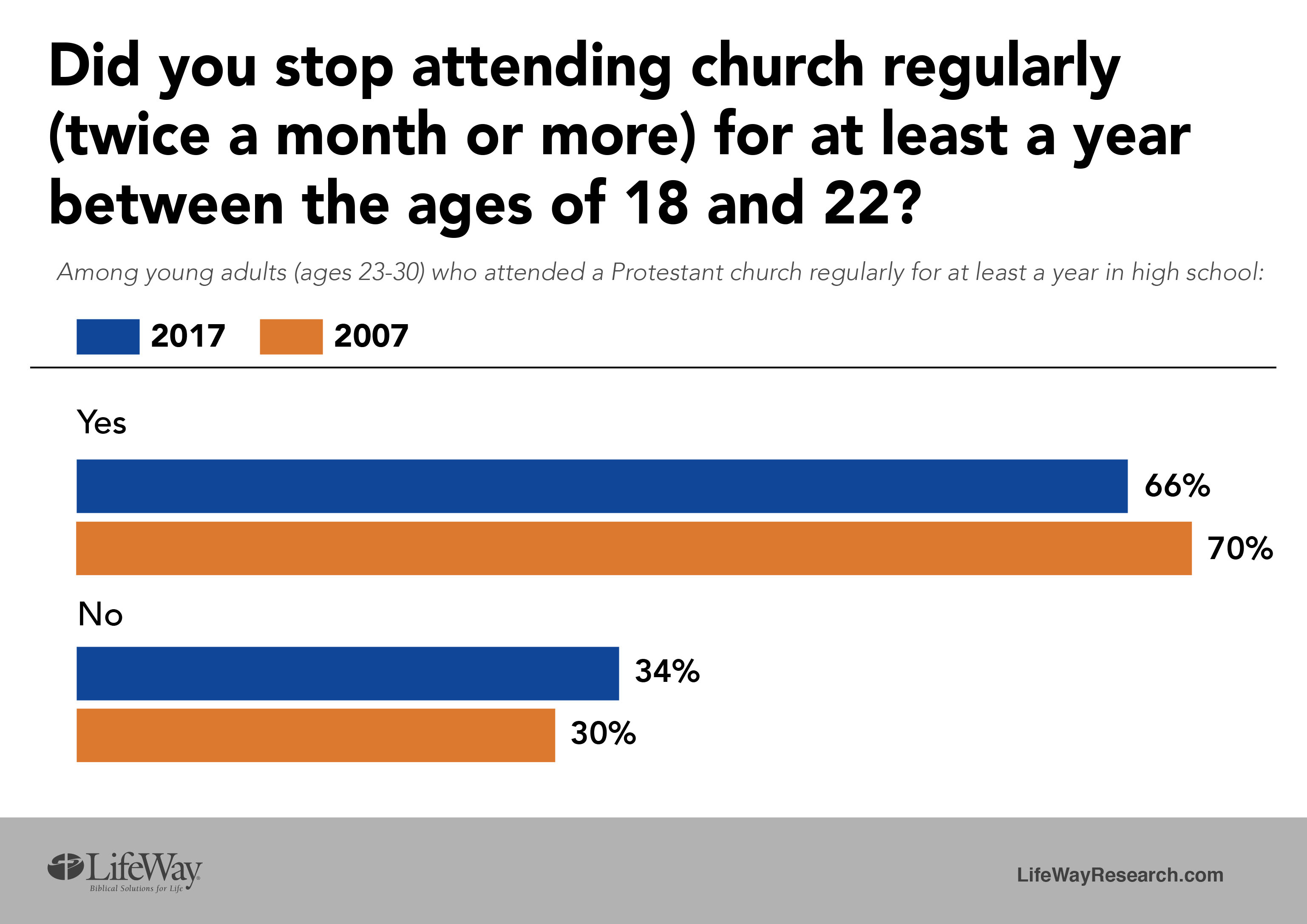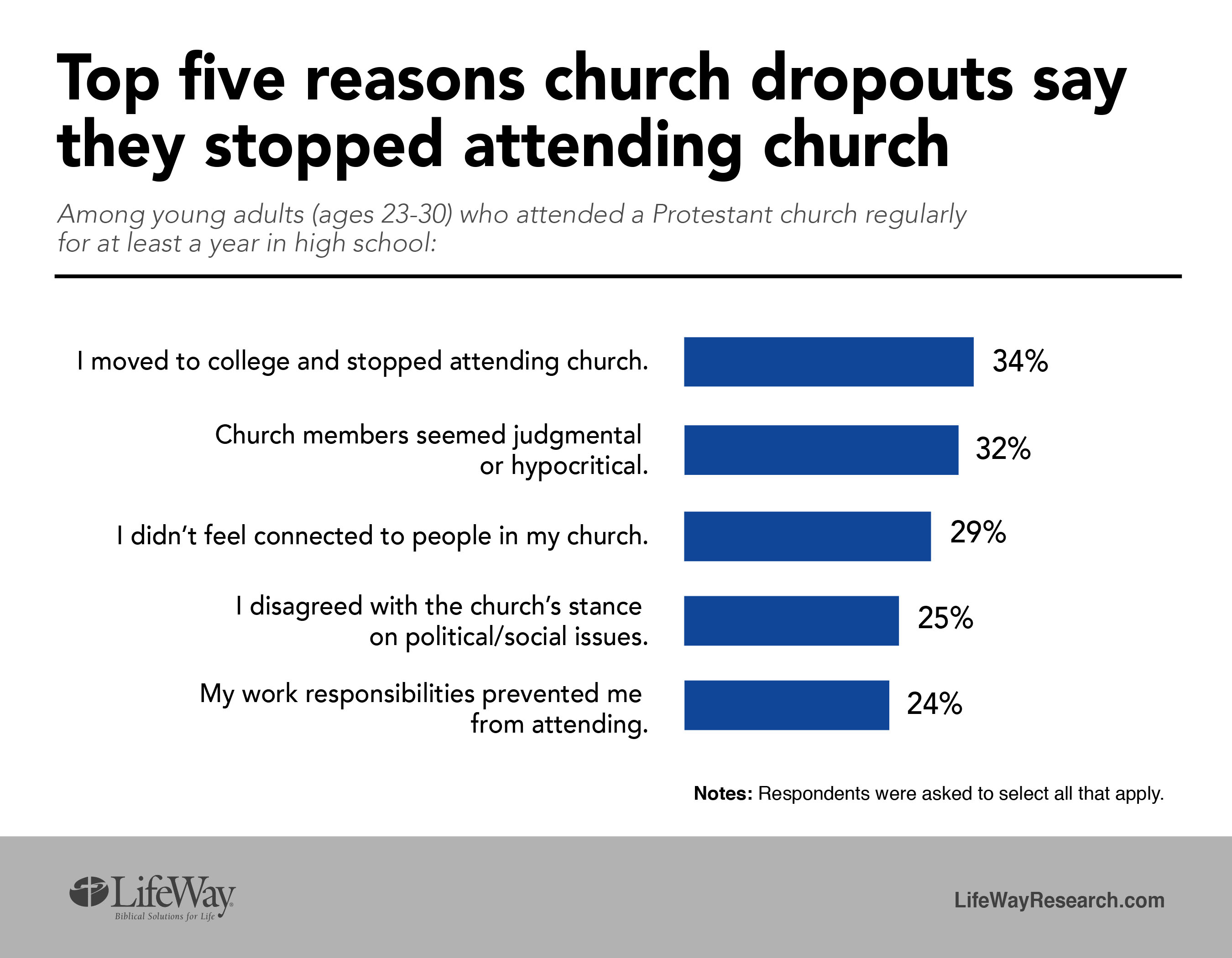According to a new study from LifeWay Research, once teenagers move into their college years, they are more likely to stop going to church than any other young adult group.
The report, titled “Most Teenagers Drop Out of Church as Young Adults,” surveyed 2,002 young adults who attended a protestant church for at least one year during their high school years.
A staggering two-thirds of those surveyed said that they quit going to church as young adults (between the ages of 18 and 22) after regularly attending during their high school years.
Scott McConnell, the executive director of LifeWay Research, said that the reality of the study is that protestant churches are seeing a decline in their membership, and this survey was a small glimpse into why.
“The reality is that Protestant churches continue to see the new generation walk away as young adults. Regardless of any external factors, the Protestant church is slowly shrinking from within,” McConnell said in a statement after the new study was released.
New Study Shows Children Raised with Religion Are Healthier as They Age
Even though the study found that many young adults are leaving the church once they hit their college years, it’s not necessarily due to a lack of faith or a change in belief.
Thirty-four percent of respondents said they stopped going to church because of “moving to college,” while another 32 percent said that “church members seeming judgmental or hypocritical.”
Twenty-nine percent of respondents said they were “no longer feeling connected to people in their church,” 25 percent said that they disagreed with their “church’s stance on political or social issues” and another 24 percent said they had a conflict because of their employment.
“Most of the reasons young adults leave the church reflect shifting personal priorities and changes in their own habits,” McConnell said. “Even when churches have faithfully communicated their beliefs through words and actions, not every teenager who attends embraces or prioritizes those beliefs.”

McConnell explained that with age, the church dropout rate increased, but it wasn’t all young people’s fault.
“Overall Protestant churches see many teenagers attending regularly only for a season. Many families just don’t attend that often,” said McConnell.
“As those teenagers reach their late teen years, even those with a history of regular church attendance are pulled away as they get increased independence, a driver’s license, or a job. The question becomes: will they become like older adults who have all those things and still attend or will students choose to stay away longer than a year?” he explained.
The study also showed that 29 percent of young adults surveyed said that once they graduated, they were planning on taking a break from church, while 71 percent said leaving the church wasn’t a premeditated decision.
Ben Trueblood, the director of student ministry at LifeWay, pointed out that the transition between high school ministry and college ministry is being hit the hardest by dropouts.
“We are seeing teenagers drop out of the church as they make the transition out of high school and student ministry,” Trueblood said. “This moment of transition is often too late to act for churches.”
“For the most part, people aren’t leaving the church out of bitterness, the influence of college atheists, or a renunciation of their faith,” he noted.

“What the research tells us may be even more concerning for Protestant churches: there was nothing about the church experience or faith foundation of those teenagers that caused them to seek out a connection to a local church once they entered a new phase of life. The time they spent with activity in church was simply replaced by something else,” Trueblood said.
Popular Rapper Says He’s Taking Sabbatical to Study the Bible ‘Because the Next Generation Is Here’
Even though an alarming number of Christians leave the church in their young adult years, 34 percent say that they stay, and attend twice a month or more.
Fifty-six percent of the respondents that stay cite their relationship with God as their reason for staying in church, while another 54 percent said “they wanted the church to help guide their decisions in everyday life.”
You can access the full study here.



